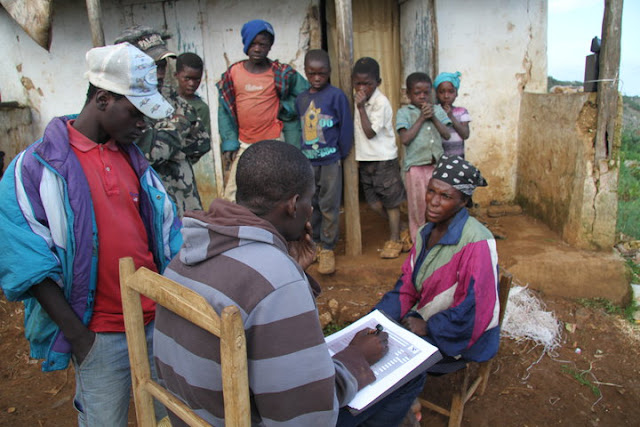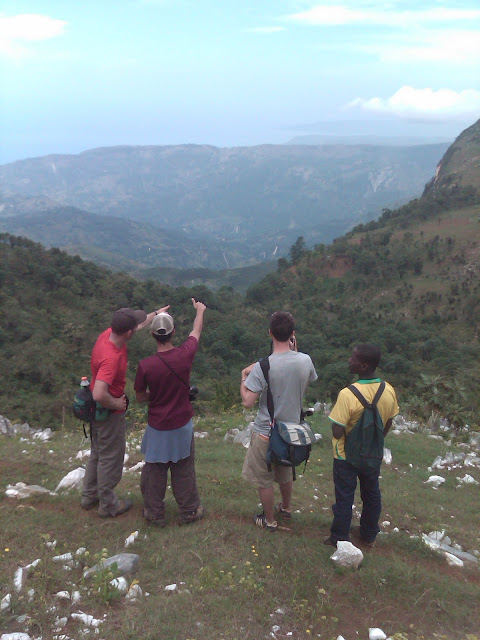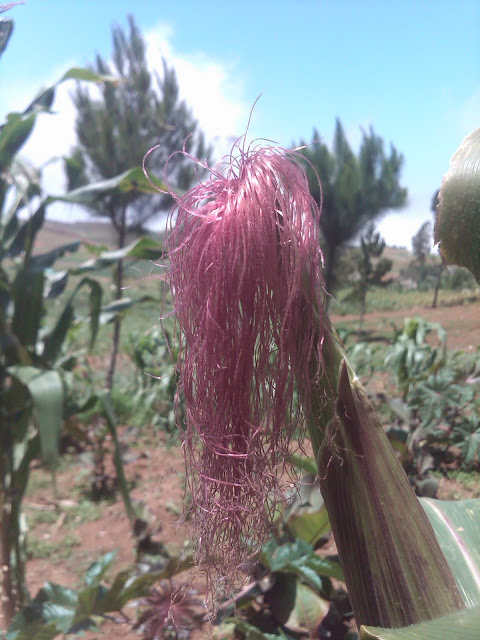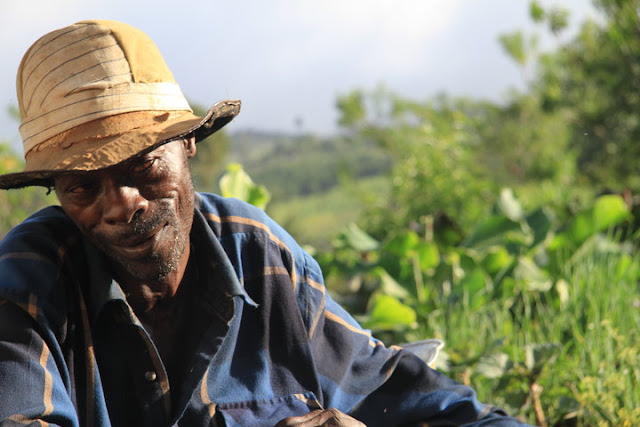Community Development International
Demographic Surveying Mission - Seguin, Haiti
July 2010
Preliminary Summary
On July 16th 2010, a team of volunteers from CDI travelled to the remote mountain region of Seguin, Haiti to conduct a preliminary surveying of the underserved population. The following report highlights the main objectives, results, and lessons learned from the completed inquiry.
Seguin, like most of rural Haiti, has failed to attract even a fraction of the media coverage and international support that has followed the January 12th earthquake, whose damage continues to be felt most extremely in the densely populated capital city of Port-au-Prince. Further constrained by its geographical isolation, five hours from the capitol and 2,600 meters above sea level, aid and support to Seguin must compete with the near-prohibitive costs of simply traveling to the location. The development of this region, however, remains a focal point in Haiti’s equitable and sustainable reconstruction for various reasons.

Of particular importance to the international development community is the un-tethered rate of deforestation that has long since removed from the countryside more than 98% of Haiti’s original forest cover. The implications of this practice on rural poverty are unquestionable. As peasants feel the economic pressures to cultivate land on the steeper, less fertile mountainsides, they remove the trees that anchor the nutrient-rich topsoil to the bedrock below. When it rains, the waters wash away this layer of soil, resulting in a lower yield for the farmers’ crops, and scenes of irreversible erosion leading to a domino effect of problems from landslides resulting in the destruction of homes and farms, the spillage of soil into rivers and ultimately into the seas harming and killing already endangered marine life.
The dependence of the country on wood and crahcoal as a main source of energy remains one of the largest obstacles to economic and environmental stability in the country. While the cutting of trees for agriculture is a serious threat to the productivity of the land, the more intense source of resource depletion stems from Haiti’s need for wood, often in the form of charcoal, to use for cooking. The long chain of resource mismanagement that ends with charcoal being used to fuel a fire in Port-au-Prince (the largest demand coming from the cities) has its beginning in the rural villages where the trees are being removed at a rate much faster than they can be replenished.

CDI travelled to Seguin to research the needs and demographic information of the area in the hopes of developing immediate and long-term projects that target the larger needs of the region: job creation, agricultural alternatives, education, and sustainable energy solutions. Alongside present development partners, most notably the environmental and infrastructure organization called Fondation Seguin and the German Development Service (DED), CDI conducted 50 “at home” interviews with families in a variety of sections within and surrounding Seguin. The sample population was chosen randomly. The questionnaires were designed to collect information pertaining to the following:
- Household; number of family members, condition of the house, utilities, ownership…
- Occupation; details pertaining to agriculture, commerce, livestock…
- Education; literacy skills within the home, schooling of the children, costs…
- Problems; identified needs in the areas of agriculture, education, and quality of life.
- Hopes
Results
The primary purpose of the survey was to identify the most pressing issues that community members felt, if resolved, would usher in improved quality of life for their families and the community as a whole.
Agriculture
The majority of those interviewed identified themselves as farmers, easily the single largest form of income generation in the area. Very few said that they ate what they grew; rather than subsistence farming, community members grew crops to sell in the local and surrounding markets that typically serve as the hub of economic activity in the countryside.

It was to the benefit of this inquiry that so many of the peasants shared similar concerns/ problems in their economic activities. Unfortunately, these problems also reflect larger inequalities whose roots extend deeper than the locality of Seguin. Many farmers said their biggest problem in the area of agriculture is a lack of money, either for buying seeds, or fertilizer (to combat the depleted nutrient-base of the soil from intensive land use and deforestation). The second largest concern was a lack of sufficient irrigation for their crops (sometimes this was expressed as "lapli pa tombe", or a general drought or lack of rain). The problems of money and water are, of course, interrelated; less water results in less yield which can mean fewer crops available for selling after the harvest.
Education
When we asked people if they felt that their children would enjoy a better quality of life compared to their own, most said that they did. When we pressed them further to explain why, the overwhelming response was education. Most parents that we interviewed had very limited, if any, literacy skills; a few could write their name. However, most parents also sent their children to school. Since the average annual cost for schooling in Seguin is roughly 1000 Goudes per student, the emphasis on education as a valuable tool for the youth is clear. Among the multitude of things that those interviewed felt Seguin was in need of is a secondary school. To date, students wishing to (and financially able to) continue onto higher education must travel to nearby Jacmel, or even farther to Port-au-Prince.
Jobs
Everyone that we interviewed believed that Seguin needs more available and variety of jobs. When we asked peasants if there was anything that they would like to learn to do, given the means, we were surprised to hear so many respond with alternative occupations. Carpentry, masonry, mechanic, and driver were some of the more common answers. When a house needs to be repaired, or furniture replaced, the community of Seguin must travel down the treacherous roads to neighboring villages for service. Alternatives to agriculture would allow the local economy to diversify and release farmers from their dependence on the often volatile climate that impacts the harvest. Further, it allows for families to generate income during the non-farming season.
Lessons Learned
While the demographic surveying was largely a success in identifying the needs of the community of Seguin, there is always room for improvement. One area that saw some discrepancies came from one of the survey’s questions; “Are you happy with your situation?” The two interview teams, one led by a Haitian, the other by an American fluent in Creole, received vastly different responses. One hypothesis is that when interviewed by a foreigner, the peasants felt more inclined to respond in the positive, expressing their contentment at having someone from outside the country visit their home (and perhaps the anticipated aid they felt they might be receiving). After a few interviews, this issue was noticed and the interviewer began to follow the original question with “why?” to make sure there was no confusion. Still, it seemed that half of the sample population continued to respond that they were happy, often with the explanation that they were grateful simply to be alive. One man even replied, “When I went to sleep last night, I woke up in the morning. That is why I am happy.” It can be safely assumed, however, from the long list of problems and needs even these happy people identified, that they were not content with their economic situation.









